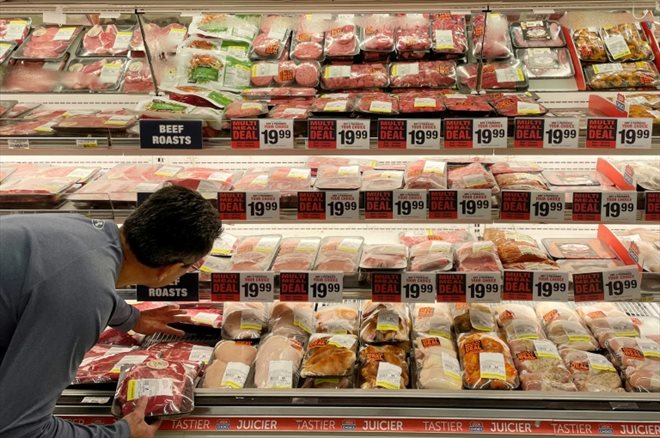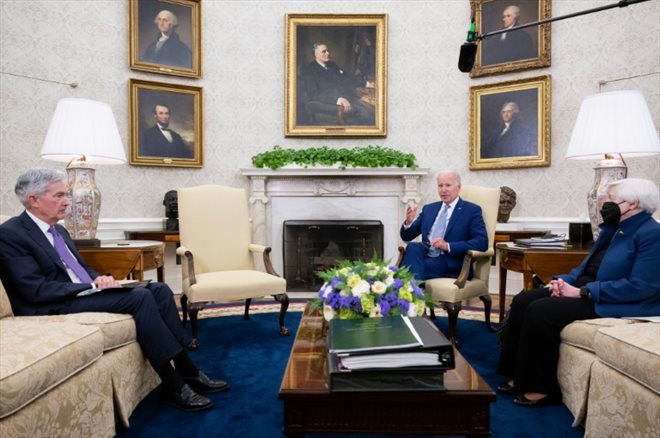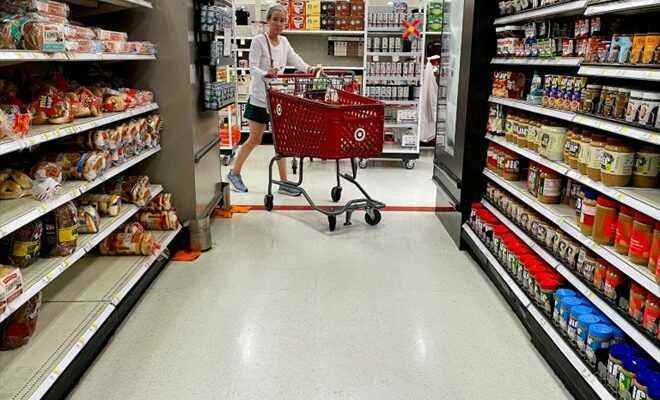Joe Biden at the White House, June 1, 2022 (AFP / SAUL LOEB)
The Biden administration is trying to turn the tide on inflation, which seems to be out of control, in order to regain some popularity with a few months to go before the midterm elections, but its levers are actually very small.
“There are many ways to (…) maintain the standard of living,” said Joe Biden on Wednesday, during a meeting at the White House with manufacturers of baby milk, a product affected by a shortage.
He mentioned, for example, a reduction in the price of medicines, or childcare, to help parents get back to work, while a shortage of labor is pushing employers to increase wages, which contributes to fuel inflation.
The Democratic president, however, acknowledged that his administration was running out of options for “immediate action” to lower the price of gasoline.
“There is not much the administration can do directly to combat inflation,” Gregory Daco, chief economist at EY-Parthenon, told AFP.
Joe Biden notably relied on Tuesday to the American central bank, the Fed, whose mission is both to control prices and ensure full employment. Its president Jerome Powell had been received at the White House, in the presence of the Minister of Economy and Finance, Janet Yellen.
But this meeting “is more a symbol aimed at showing that the administration is aware that inflation affects many households in the United States and that it is a scourge that must be resolved urgently”, according to Gregory Daco.
It also signals that “the administration does not have the power to limit inflation in a direct way,” he added.
– “Help the Fed” –
Reduce the cost of certain drugs, increase taxes for the richest Americans and for multinationals, speed up housing construction, tap into strategic reserves…,Joe Biden detailed Monday, in a column in the Wall Street Journal , some possible options, or measures already launched.

In a supermarket in Annapolis (Maryland), May 16, 2022 (AFP/Archives/Jim WATSON)
But, for the most part, they “either require Congress to pass legislation (good luck!), or they will be of little effect in reducing inflation in the short term”, notes in a post the economist Stephanie Kelton, professor at the Stony Brook University.
The federal government can, however, through its fiscal policy, “help the Fed do its job,” said Marc Goldwein, vice-president of the Committee for a Responsible Federal Budget, a centrist organization.
“The government has many other tools to reduce demand, stimulate the supply of labor and capital, encourage savings and directly reduce prices,” he said in a series of tweets on Wednesday.
Another measure would be to reduce tariffs on hundreds of billions of Chinese products, which the White House is reluctant to do amid diplomatic tensions with Beijing.
Inflation slowed down a bit in April, but remains close to its highest level in 40 years, at 8.3% according to the CPI index.
– “Lower the costs” –
Failing to have any real leeway on the trajectory of prices, the administration is now playing the communication card.

Joe Biden with Jerome Powell and Janet Yellen at the White House on May 31, 2022 (AFP/SAUL LOEB)
“The president has underlined his intention to do everything he can to reduce the costs that Americans face for important items in their budget,” Janet Yellen said on CNBC on Wednesday.
On Tuesday, the Treasury Secretary also made her mea culpa, acknowledging that she had not been able to anticipate the strength or the persistence of inflation.
Joe Biden’s top economic adviser, Brian Deese, spoke to reporters on Tuesday at the White House’s daily press briefing, assuring that the subject was the president’s “top economic priority”.
“We can make this transition to stable growth without sacrificing all this economic progress if we make the right decisions,” he said.
The Fed began to raise its key rates in March, to make credit more expensive and slow demand. Fears are now growing that economic activity will slow down – or even fall into recession.
For Gregory Daco, “this economic slowdown is desired, and is even desired and desirable, since without this economic slowdown, it is unlikely that inflation will decrease”.
Having started this movement earlier would undoubtedly have reduced the risk of recession, but “we would have had less growth than what we have today”, he believes.
© 2022 AFP
Did you like this article ? Share it with your friends with the buttons below.




